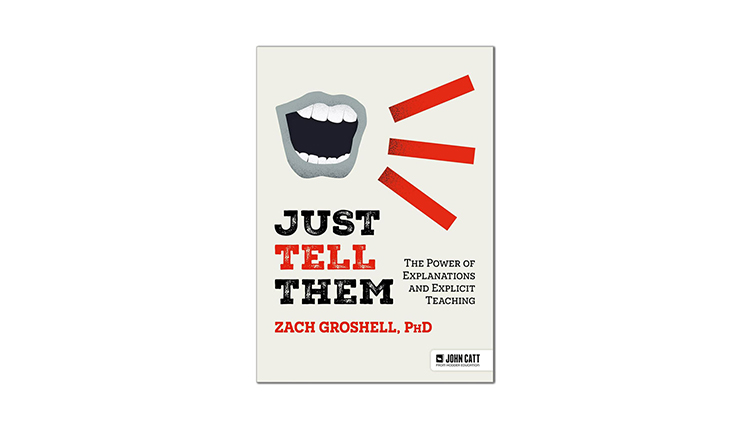Zach Groshell - “Just tell them: The Power of Explanation and Explicit Teaching”

Within the walls of Australian schools, common sense is finally developing a mandatory quality as most employing bodies have come to the realisation that explicit instruction should have given students the opportunity to learn essential skills and knowledge. So, the Science of Reading is now well embedded in early learning, and the strange practices surrounding some maths teaching are being regularly exposed in the media.
It was a pleasant surprise when our colleague from Rochester said, “In the United States, the teaching world is being thrilled by a young, new voice, with an engaging enthusiasm in explaining the instructional rethink for teachers. Guys, check out Zack Groshell’s book “Just tell them”, and, as a leading new-wave educational influencer, listen to what he has to say across the social media.”
What we liked was that the author explained the key concepts of explicit instruction in language that new teachers can relate to. For example, we have all struggled with the constricting limits of working memory, however Zach explains this bottleneck of learning (with graphics), and provides sound advice on overcoming the working memory limitations: Cut the fluff and free up working memory!
The strength of this teacher support text is that it is evidence based, and Zach explains his approach by using in class teaching examples. His take on the “Alternating Principle” (pp. 36-37) gives a more realistic view of the “I do”- “You do” interaction and pointing out that this is not strictly, macro-linear process, but often a series of formative interactions.
The graphics are excellent, and the 96 pages of this book are engaging for experienced teachers, and our pre-service teachers. The text oozes practicalities and it is an easy read that is aimed at teaching practitioners. In terms of readability and authenticity Zach breaks down the theoretical bits into attractive, palatable, bite sized delicacies.
This book will help establish good teaching practices in our schools, and it will give teachers a set of defendable beliefs that will support their pedagogic practices.
.